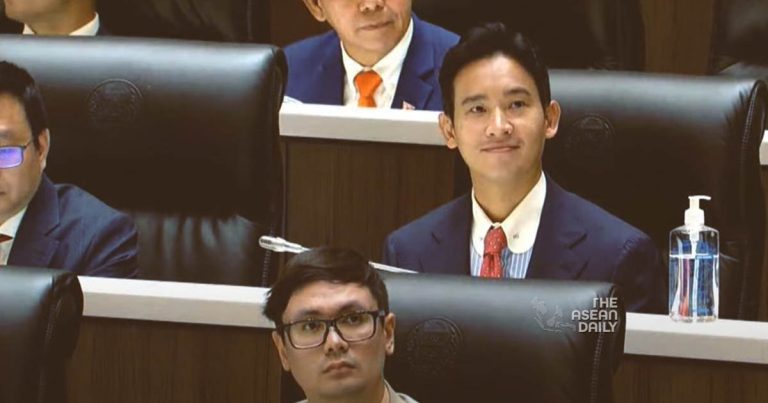10-9-2023 (BANGKOK) A recent opinion survey conducted by the National Institute of Development Administration (Nida Poll) has shed light on public sentiment, indicating that a majority of respondents believe the Move Forward Party, which boasts the largest number of MPs in the House of Representatives, should assume the role of opposition leader. This survey aimed to gauge public perceptions regarding the choice between the positions of deputy speaker and opposition leader in the House of Representatives for the Move Forward Party.
The poll, conducted through telephone interviews from September 5 to 7, engaged 1,310 participants aged 18 and above, representing diverse educational backgrounds, occupations, and income levels across the country. Participants were solicited for their viewpoints on the matter.
When asked about the relative importance of the roles of deputy House speaker and opposition leader, 38.40% of respondents considered them equally important. In contrast, 29.85% leaned towards the importance of the opposition leader role, while 28.55% pointed to the deputy House speaker position. A smaller percentage, 1.68%, regarded neither role as significant, and 1.52% either had no response or exhibited disinterest.
Regarding the choice between deputy House speaker and opposition leader that the Move Forward Party should make, a notable majority, 56.11%, expressed a preference for the opposition leader position. In contrast, 39.08% suggested that the party should retain the deputy House speaker post, while 4.81% either had no response or lacked interest in the matter.
Furthermore, the poll explored the potential for collaboration between the Move Forward Party and the Democrat Party within the opposition bloc. A significant majority, 65.80% of respondents, believed that collaboration could succeed, with 37.25% expressing optimism about it going “fairly well” and 28.55% indicating that it could go “very well.” Conversely, 30.61% harbored doubts about the prospects for collaboration, with 17.79% predicting that it would not go smoothly and 12.82% asserting that it would not succeed at all. A minority of 3.59% either had no response or found the topic uninteresting.
Despite being the political party with the highest number of MPs in the opposition bloc, the Move Forward Party remains hesitant to assume the role of opposition leader. This reluctance stems from concerns related to the Constitutional Court’s pending ruling on the MP status of the party’s leader, Pita Limjaroenrat. The Constitutional Court is tasked with determining whether Mr. Pita held shares in a media firm at the time of his application to contest the May 14 election.
Should the party choose to accept the position of opposition leader, its MP, Padipat Suntiphada, who has already been elected Deputy House Speaker, would need to relinquish that role. Section 106 of the constitution stipulates that after the cabinet takes office, the King appoints the opposition leader, who must be the leader of a political party in the House of Representatives with the largest number of MPs, none of whom can hold cabinet positions, serve as House speakers, or assume the role of deputy House speakers.




